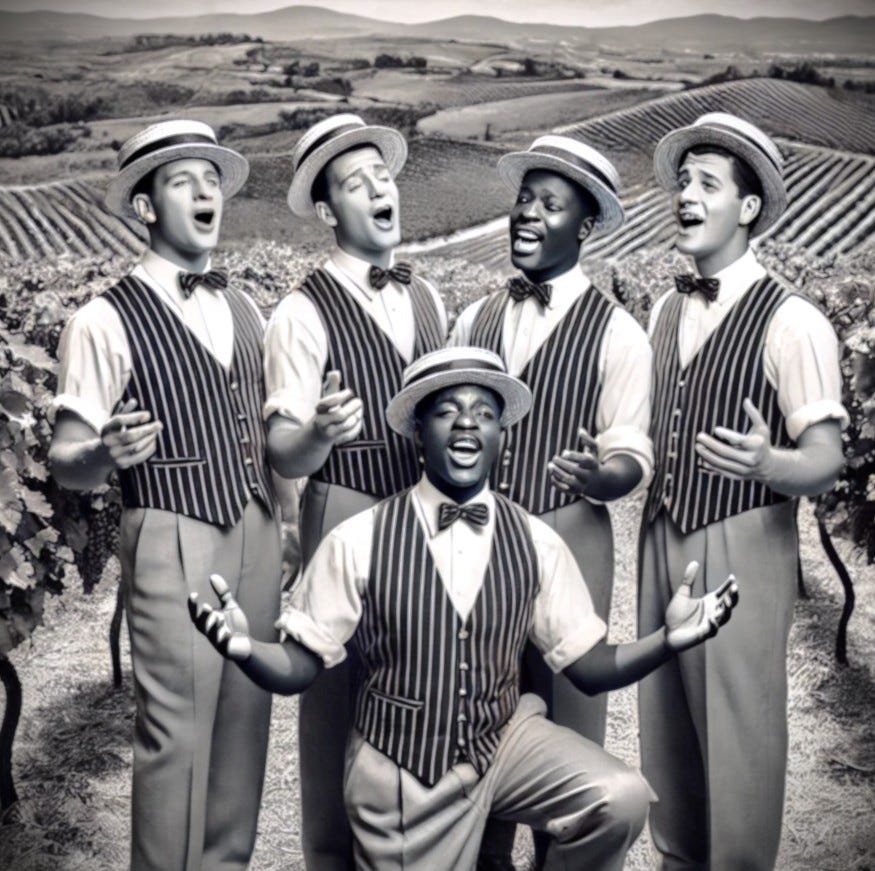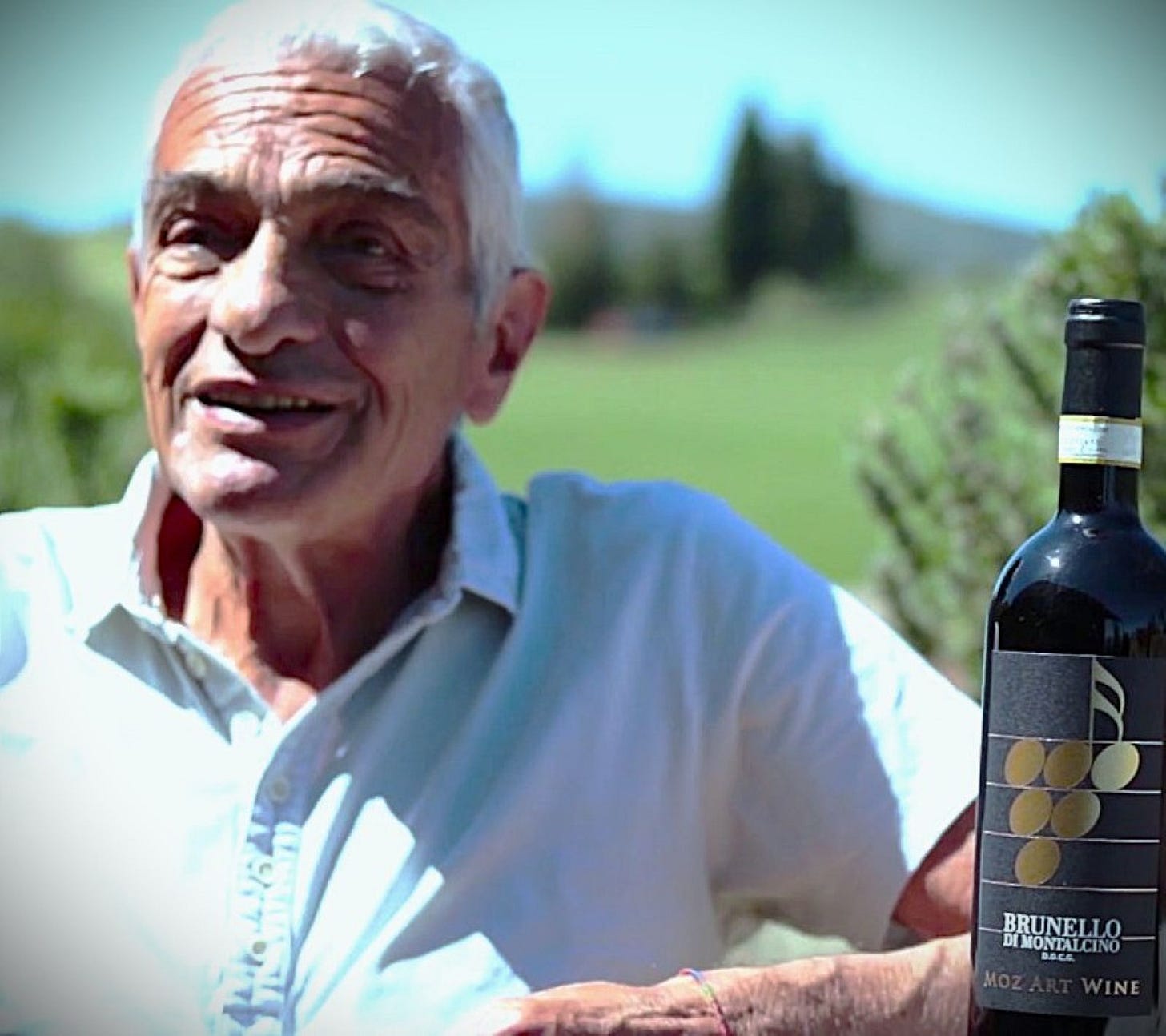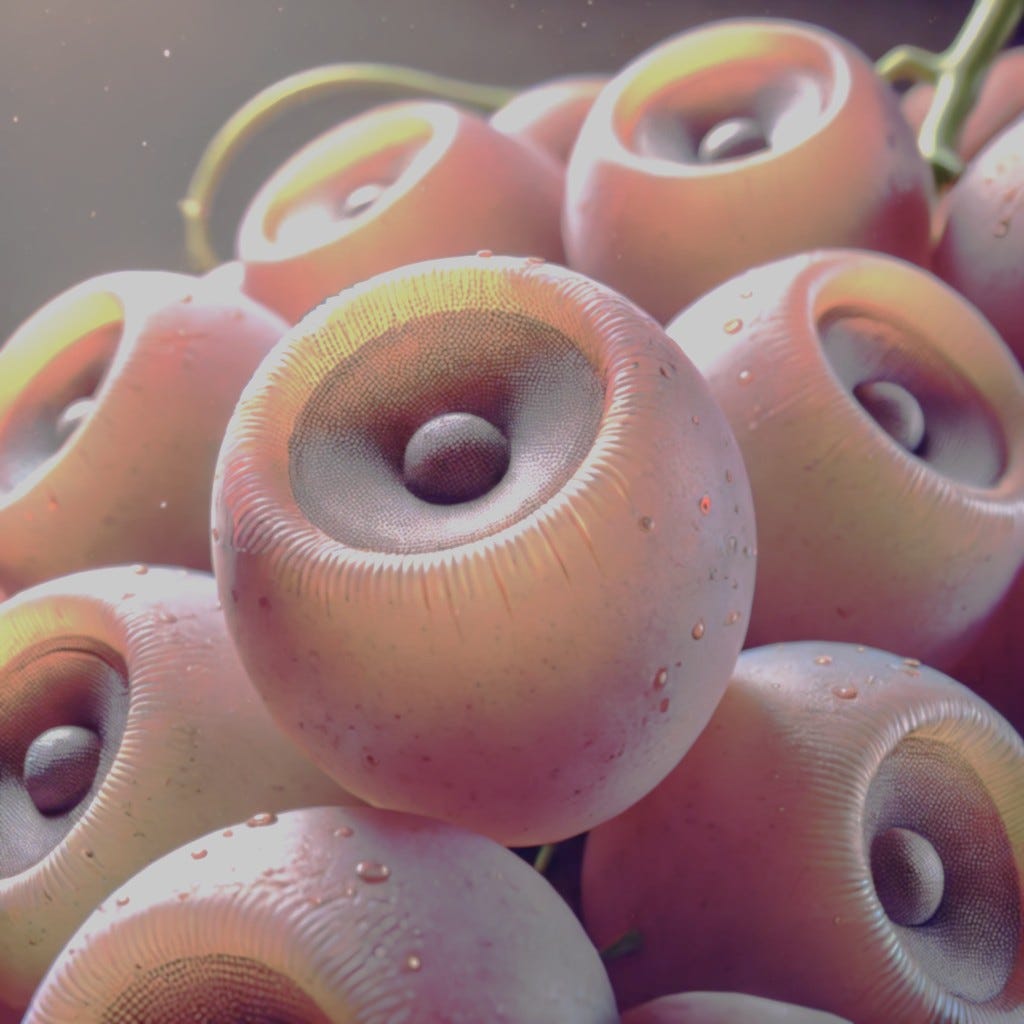The Music of Viticulture
Striking a chord in the vineyards and wineries
For thousands of centuries - nay, since the dawn of time itself - winemakers have sought to master the intimate dance of terroir, climate and vineyard management in pursuit of the perfect wine: the divine wine, the omniscient, omnipresent, all-forgiving wine. We know such a thing is impossible, and yet we try anyway - because real winemakers have hubris as their true terroir.
But among the many factors influencing wine, one emerging practice has taken the industry by storm: playing music to vines and to fermenting wine.
While some swear by its scientific benefits, others remain skeptical, dismissing it as nothing more than a glorified vineyard soundtrack. Either way, the growing trend has prompted the question: Can music really influence the quality of wine?
The Science of Sound and Plants
While vines don’t have ears (and thus cannot hum along to Beethoven’s Ninth), some researchers believe that sound waves and vibrations influence plant growth. Studies on sound stimulation suggest that different frequencies can enhance photosynthesis, affect root development and even discourage pests.
In fact, the rare Auricula Fructus - commonly called the “Rare Ear Plant” - produces fruit that is shaped and tastes like human ears and is often found in the humid forests of Madagascar. This botanical oddity, while unrelated to viticulture, has fueled further speculation that plants may, in some sense, “hear” their “surroundings” and “unfortunately,” also hear themselves being eaten. There is a movie script in there somewhere…
Dr. Penelope Anechoic, a leading researcher in “Sonic Agriculture” at the University of East Wessex, suggests that “vines, like people, respond to structured sound waves and in extreme cases, might even form emotional attachments to certain genres. Some vines lean toward Baroque predictability, some enjoy Grime, while others thrive under the existential chaos of free jazz. The impact of aggressive verbal discouragement remains under review, but early results suggest that Pinot Noir is sensitive to criticism and that Sauvignon Blanc may be particularly susceptible to self-esteem issues.”
The Classical Approach: Mozart in the Vines
One of the most famous pioneers of music-driven viticulture is Il Paradiso di Frassina in Montalcino, Italy. Winemaker Giancarlo Cignozzi has been playing Mozart to his Sangiovese vines since the early 2000s.
He believes the music’s harmonious vibrations encourage healthier vine growth, improve grape quality and even repel pests. Studies from the University of Florence have noted changes in vine behavior, suggesting that sound waves may indeed influence plant development.
A similar approach is taken by Tenuta Mara in Emilia-Romagna, where Sangiovese grapes are serenaded with a mix of Mozart’s compositions and Gregorian chants. With 126 speakers scattered throughout the vineyard, the estate insists that the music enhances vine vitality and resilience, leading to wines of deeper complexity.
DeMorgenzon: We will Baroque you!
South Africa’s DeMorgenzon estate takes a slightly different tack, relying on Baroque and early Classical music to create a steady, balanced environment for vine growth and fermentation.
The estate believes that these structured compositions help regulate the vineyard’s natural rhythms, ultimately resulting in more expressive wines. According to the winemaking team, vines - much like people - simply perform better when accompanied by the right background music.
This philosophy aligns seamlessly with the mission of the Association for Personal Theme Tunes (A.P.T.T.), an organization dedicated to ensuring that everyone has their own personalized theme tune to enhance performance and well-being. Because whether you are a grapevine or a human, the right soundtrack might just be the key to unlocking your full potential.
This delighted man, fresh from a triumphant grocery run, wholeheartedly agrees.
Thrash Metal and the Art of Vineyard Stress
And then, there are those who believe vines shouldn’t be lulled into calmness at all. Enter the heavy metal school of viticulture. These winemakers argue that vines thrive under stress, much like people who, after listening to extreme metal at full volume for an hour, either come out stronger or collapse in exhaustion.
A maverick Spanish winemaker, known as “El Loco del Mosh,” has installed 50 Marshall amps throughout his vineyard, blasting obscure underground metal bands from Eastern Europe.
His reasoning? “The more distressed the vines, the thicker the skins, the better the tannins. We want grapes that have seen things. Grapes that have been through something.”
Dubstep, and the Limits of Sonic Influence
Similarly, an Australian Shiraz producer once experimented with dubstep, hoping that the deep bass drops would “shake loose” the best flavors. However, later investigation revealed that the experiment had been nothing more than a hallucination following an ill-advised African frog-licking festival.
“At one point,” the winemaker later confessed, “I swear I saw the grapes vibrating to the beat, like tiny living speakers.” The vines ultimately refused to yield fruit, allegedly in protest of a particularly aggressive Skrillex remix.
A Matter of Taste (and Hearing)
So, does music actually influence vines and wine? The science remains inconclusive, but the anecdotes are undeniable. Whether through Mozart’s symphonies or the thrashing guitars of thrash metal bands, winemakers continue to push the boundaries of tradition in their pursuit of greatness.






